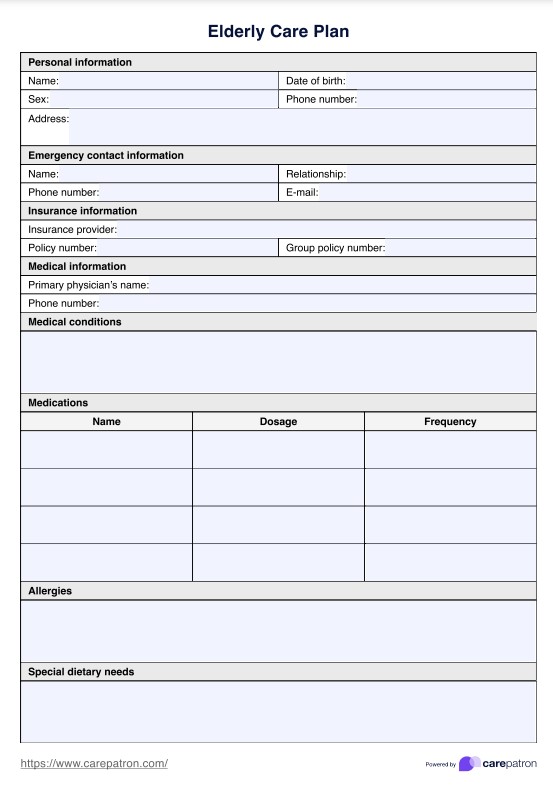
Creating a care plan for elderly patients involves several steps to ensure comprehensive care. Discover the ins and outs of what to include in your plans with this plan template and guide!

By Harriet Murray on Jul 31, 2024.
Fact Checked by RJ Gumban.


A care plan provides a personalized and coordinated approach to managing a patient’s medical condition. As a proactive approach to caregiving, a care plan for the elderly should be personalized to address specific needs, health conditions, abilities, and preferences.
It is an essential tool healthcare workers and caregivers can use to ensure the goals of care are being met for both the care recipient and the caregiver(s). The evolving needs of the care recipient necessitate regular updates to the care plan, ensuring that personal care and all daily needs, from daily activities to medical management, are adequately met.
With the care plan, the caretakers can track, monitor, and outline an individual’s needs and flag aspects of care that may require external service providers. In collaboration with a physician, a daily care plan for the elderly may also help facilities and service providers decide the level of care and severity of an individual’s needs, dictating access to certain care homes and funding.
A care plan designed for a care facility will differ vastly from a care plan designed for one’s own home. Yet, essential information such as medication needs, physical capabilities, and encouraging life-enriching tasks stays consistent across all care plans. By having a clear written plan made with the patient and their healthcare team, goals of care are easily accessible, and every decision and aspect of support offered can be checked against the plan to ensure that quality of life is being fostered and encouraged.